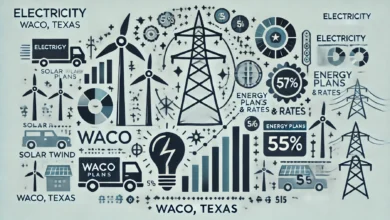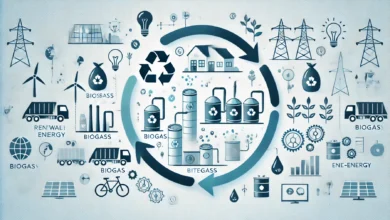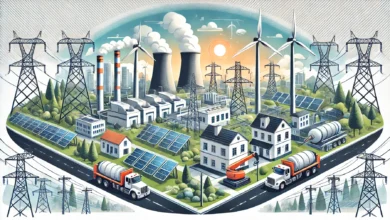Energy Engineering Technician | Education and Certifications

Energy engineering technicians play a critical role in making the transition to more sustainable energy systems. They bring together the design work of engineers to practical movement in the field to make sure the energy project turns into an efficient, safe, and cost-effective system. Energy technicians provide valuable service, regardless if it is through the design of a renewable energy system or maintaining an existing conventional power plant. Energy engineers and technicians provide a vital service in the fast-changing world of energy.
Contents
What Does an Energy Engineering Technician Do?
Energy engineering technicians implement and maintain energy systems. They are the people who work in the field with engineers. Technicians will often take environmental measurements, assist in the installation of systems, or monitor energy while functioning on a day-to-day basis. Energy technician responsibilities could include collecting data, testing equipment and systems, troubleshooting work, and monitoring compliance of environmental and regulatory requirements.
In the renewable energy space, technicians could assist in installing solar panels or assisting in the installation of wind turbines. In the conventional energy space, technicians could monitor combustion systems, inspect buildings and facilities for compliance to regulations, or assist with day-to-day maintenance of boiler systems. Energy technicians serve as a valuable resource to the operator and as practical and hands-on people in the field who use their technical knowledge in practice.
Skills and Qualities Necessary
To be a successful energy engineering technician, technical and soft skills are essential:
- Analytical thinker: The ability to understand and interpret data, collect data, interpret temperatures, and troubleshoot.
- Technical skills: Knowledge of energy systems and equipment including computers, electrical circuits, mechanical circuits, and sensors.
- Attention to detail or focus: Ensuring all energy systems adhere to regulations, standards, and maintain efficient operations.
- Communication skills: Ability to work with people including engineers, contractors, and clients.
- Change: Being comfortable with changing technology and dealing with creative innovations in energy.
Educational Criteria for Energy Engineering Technicians
Typically, at the very least, post-secondary education is needed, but the educational criteria depend on the trajectory of the applicant and what the local industry entails.
Two-Year Associate Degree Programs
Many technicians earn an associate degree in energy technology, mechanical engineering technology, or a related field. The typical associate-level degrees could be completed within two years and include a general overview of foundational energy technology ideas such as thermodynamics, energy management, and system design. Many colleges will include an internship or cooperative education component that students can participate in and work in an industry setting.
Bachelor’s Degree Options
Although there is no requirement to obtain a bachelor’s degree, many technicians proceed to earn higher-level degrees for broader career options. A bachelor’s degree in mechanical engineering, civil engineering, electrical engineering, or renewable energy engineering can open doors to advanced technician or supervisory opportunities.
Related Courses and Experiences
Typical classes could include:
- Energy system design
- Environmental science
- Principles of electrical system technology
- Mechanics of mechanical systems
- Fundamentals and principles of project management
Today, more training programs are needed to educate energy engineering technicians about geothermal systems or wind power technologies, supporting the rise of renewable energy.
Certifications for Energy Engineering Technicians
Examples of Popular Certification Programs
Certifications are a good indication of experience and typically offer expanded employment options for a technician. Examples include:
- Certified Energy Manager (CEM)
- Certified Renewable Energy Professional (REP)
- LEED Green Associate (Leadership in Energy and Environmental Design)
- EPA Certified Technician for handling refrigerants (important for HVAC technicians)
Importance of Certification for Advancement
Certification supports professional development and represents a commitment to attaining certification goals. It can lead to higher wages, leadership, and specialized roles. For example, a technician certified in wind turbine technologies may qualify for field supervisory positions faster than other technicians, related to wind turbine technician careers.
Career Outlook and Opportunities
The energy sector is evolving quickly. The U.S. Bureau of Labor Statistics forecasts that employment of energy technicians will see faster-than-average growth, especially within renewable energy, for the next decade. As solar, wind, and geothermal technologies expand, demand will grow even more.
States investing heavily in clean energy, such as Texas and California, will continue to see strong job markets.
With experience, many technicians move into roles as energy auditors, project managers, or technical sales representatives. Others transition into consulting roles helping companies achieve their net-zero carbon objectives.
Frequently Asked Questions (FAQ)
How long does it take to complete education and become an energy engineering technician?
A technician will generally complete their education in two years through an associate degree, plus a few extra months for certifications.
Is certification a requirement?
Certification is not usually required, but strongly recommended for better employment prospects and career advancement.
Where do energy engineering technicians work?
Technicians typically work in utilities, manufacturers, renewable energy companies, government agencies, and consulting firms.
Can energy engineering technicians work outside of their home country?
Yes, many certifications are recognized internationally, offering technicians the opportunity to work overseas.
What are the salary expectations?
Most technicians start with a salary range of $45,000 to $65,000, with specialized technicians exceeding $80,000 with experience.
If you have an interest in the future of sustainable energy, starting a career as an energy engineering technician could be a challenging and rewarding opportunity. If you’re interested in exploring other roles, check out our guide on how to become a wind turbine technician and discover more career options in the energy sector.



